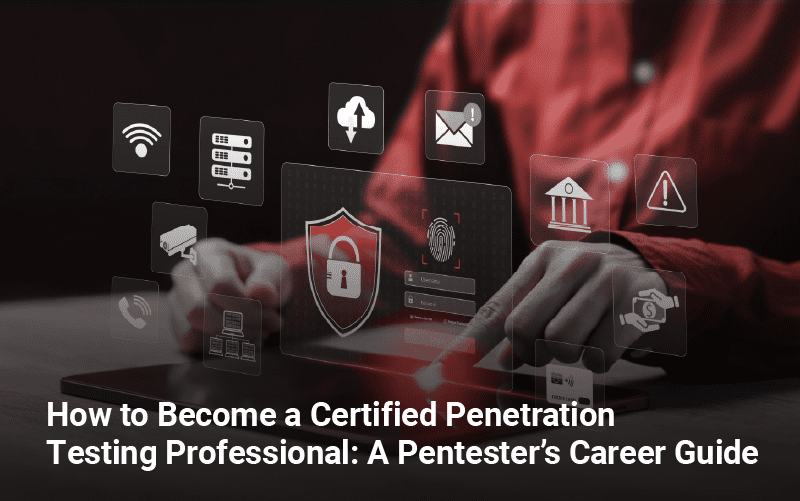An Overview of Penetration Testing and Its Importance
Let’s begin with the basics – clarifying what penetrating testing is all about. As cyberattacks become increasingly prevalent, it’s incumbent on organizations to do everything possible to mitigate these digital threats. Here’s where penetration testing comes into play. Put simply, penetration testing, commonly referred to as pen testing, is the process of mimicking cyberattacks on a computer system to identify vulnerabilities. In the high-stakes game of cyber security cat and mouse, organizations rely on pen testing as a proactive defensive practice to eliminate IT weaknesses before cybercriminals can exploit them.
Given the rapid pace of technological development, more and more avenues for malicious actors to deploy sophisticated cyberattacks are constantly emerging, with penetration testing a crucial method of keeping organizations one step ahead in this fraught digital battlefield and strengthening their cyber security countermeasures. Other important functions of pen testing are to help adhere to regulatory compliance, manage risks by determining the severity of vulnerabilities, and provide a realistic assessment of an organization’s cyber defenses.
Essential to Enterprise Security: The Job of a Pentester
At the heart of it, a Pentester (short for Penetration Tester) assumes the role of a malicious hacker, but without harmful intentions. They work to uncover what cybercriminals could do and take pre-emptive actions to neutralize such possibilities. There are several overlapping functionalities involved in penetration testing and ethical hacking, which is why Pentesters are also commonly referred to as Ethical Hackers, Security Analysts, or Vulnerability Analysts.
Let’s take a closer look at what the job of a Pentester entails:
- Planning and Reconnaissance: The first step is gathering information about a target system to study its structure and detect exploitable flaws. This encompasses passive reconnaissance techniques (without directly interacting with the target) and active reconnaissance techniques (directly interacting with the target system).
- Scanning: The next step is mapping the attack surface using penetration testing tools that identify open ports, services, and potential entry points.
- Exploitation: Then comes attempting to gain unauthorized system access through exploiting known vulnerabilities or writing custom scripts for bespoke attacks. Once this is done, the next step is to escalate privileges to gain higher-level access by exploiting weak passwords, unpatched systems, and misconfigurations.
- Post-Exploitation: The fourth step is ensuring unhindered system access to simulate a real-world attack scenario. This involves maintaining access, moving laterally within the network to access other systems using the compromised system as a base to launch further attacks, and extracting sensitive information using encrypted channels to transfer data and avoid detection.
- Reporting: The final stage is to document their findings, including vulnerabilities discovered, methods used, and their recommendations for remediation. Clear and concise reporting is vital for communicating risks to stakeholders and decision makers.
Charting Your Path to Becoming a Certified Penetration Testing Professional
The Pre-Requisites
Do you consider yourself a problem-solver? Do you pay meticulous attention to detail? Do you like complex puzzles? How about a natural curiosity or passion for cyber security? If the answer is ‘yes!’, you have the core traits to flourish as a pentester. Consider joining EC-Council University’s Security Analysis and Vulnerability Assessment non-degree course to strengthen your understanding of foundational penetration testing concepts and practices.
Higher Education
Basic propensity aside, you’ll need to gain the qualifications to make inroads towards a career in penetration testing. A cyber security-oriented master’s degree is now the norm for aspiring pentesters. Specific degrees focus solely on security analysis and network defense, designed to deepen your pen testing expertise and help you build a successful career in this highly technical field.
Experience in IT
Starting your career with entry-level IT jobs in security administration, network administration, network engineering, system administration, or application programming is a great way to prepare for a future role as a pentester. It enables you to develop valuable skills and knowledge while you gain work experience.
Professional Certifications
It’s a fact that employers prefer candidates who possess certifications that endorse their professional skills when recruiting for cyber security roles, especially senior positions. One of the most sought-after and respected certifications related to pen testing is Certified Penetration Testing Professional (C|PENT) offered by EC-Council University.
It’s important to note that qualifications play a substantial role in determining how far your career can progress as a cyber security professional. The more qualified you are, the more your reputation and credibility are enhanced, leading to exciting career advancement opportunities.
EC-Council University: The Home of World-Class Pen Testing Qualifications
Ready to commence your journey to becoming a certified pentester? EC-Council University has helped thousands of ambitious cyber security professionals like yourself realize their career goals. Our Master of Science in Cyber Security (Security Analyst Specialization) program has received global acclaim and recognition as one of the best educational experiences available for aspiring pentesters. You’ll build a solid foundation of ethical hacking, penetration testing, and network security skills and knowledge that are in high demand in the current business landscape, while also gaining multiple industry-approved certifications such as Certified Ethical Hacker (C|EH) and Certified Penetration Testing Professional (C|PENT) that show employers you have what it takes to be an expert pentester of the highest caliber.
Connect with our Enrollment Advisors to understand what this program entails and how it can supercharge your penetration testing career trajectory.








